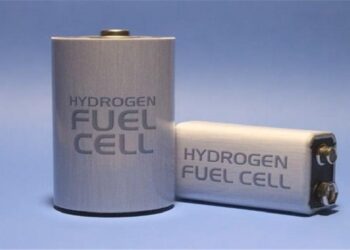The Department of Energy (DOE) has selected four projects to receive funding for next-generation gasification systems that reduce greenhouse gas emissions. Awardees will receive about $16 million to advance the gasification process.
Gasification plants have the potential for greater power generation efficiency and environmental performance than conventional coal-fired plants, and serve as the basis for integrated gasification combined cycle (IGCC) advanced power generation and co-production plants capable of 90 percent carbon dioxide capture.
The funded research projects will focus on developing technologies that can reduce the cost of producing hydrogen-rich syngas derived from fossil fuels.
The projects include:
AerojetRocketdyne Inc. (Canoga, California) — Advanced Gasifier and Water-Gas Shift Technologies for Low-Cost Coal Conversion to High-Hydrogen Singers. Working in collaboration with Coanda Research & Development, the Gas Technology Institute, RTI International, and Nexant Inc., this project will focus on further developing an advanced pilot-scale gasifier integrated with RTI’s Warm Gas Clean Up for use in a commercial demonstration plant.
The project will conduct research on advanced water-gas shift processes and catalysts for testing at pilot-plant scale, which will reduce the cost of high-hydrogen syngas production. Further, a techno-economic analysis will be conducted to validate benefits of the proposed technologies for both IGCC and co-production plants.
Alstom Power Inc. (Windsor, Connecticut) —Alstom’s Limestone Chemical Looping Gasification Process for High-Hydrogen Syngas Generation. Research conducted under this program aims to develop Alstom’s limestone-based chemical looping gasification (LCL-G) concept for conversion of coal to high-hydrogen syngas for power generation and/or liquid fuel production.
Working in collaboration with NewCO2Fuels Ltd., and the Illinois Clean Coal Institute, the LCL-G process will be evaluated and refined using bench-scale testing followed by process validation at Alstom’s 3-MW (thermal power) chemical looping test facility. A techno-economic assessment of the LCL-G technology for power and/or syngas generation will be conducted to demonstrate that the system has the potential to meet DOE cost and performance goals.
Praxair (North Tonawanda, New York) — OTM-Enhanced Coal Syngas for Carbon Capture Power Systems and Fuel Synthesis Applications. This project will initially focus on developing a techno-economic analysis of an IGCC power plant with CO2 capture with an integrated oxygen transport membrane (OTM) syngas converter to determine technical targets for the OTM and culminate in determining technology success based on project data.
The technology will be evaluated in a scalable panel array module that will be field tested for 500 hours at the National Carbon Capture Center using syngas from a coal-fed gasifier. Other process variables will include using natural gas as a secondary feedstock and evaluating the conversion of coal and natural gas-derived syngas to liquid fuels.
TDA Research Inc. (Wheat Ridge, Colorado) — Integrated WGS/Pre-combustion Carbon Capture Process. The objective of this work is to develop an integrated water-gas shift pre-combustion CO2 capture technology to eliminate CO2 emissions from IGCC power plants. The project team includes Gas Technology Institute; University of California, Irvine; Indigo Power Systems; the National Carbon Capture Center; and CB&I/Lummus Technology.
The team will develop the design of a reactor using computational fluid dynamics and kinetic modeling to achieve optimum CO2 removal and hydrogen recovery. The team will also design a fully equipped slipstream test unit with syngas treatment capacity to demonstrate the technology’s viability. In addition, field tests will be conducted at the Power Systems Demonstration Facility at the National Carbon Capture Center in Wilsonville, Ala., and at the Wabash River IGCC plant in Terre Haute, Ind.
Managed by the Office of Fossil Energy’s National Energy Technology Laboratory, the Gasification Systems Program works with other DOE programs and private organizations to ensure that gasification research projects are integrated with other efforts and to ensure efficient technology development with minimum cost to taxpayers.




































